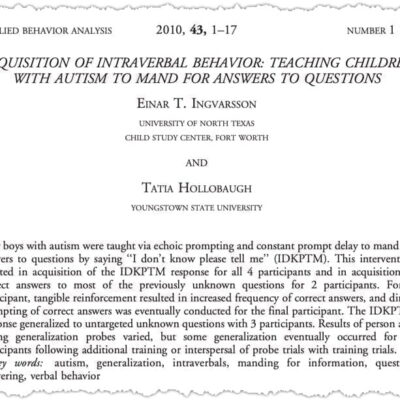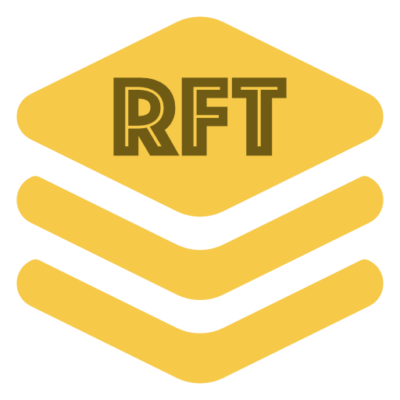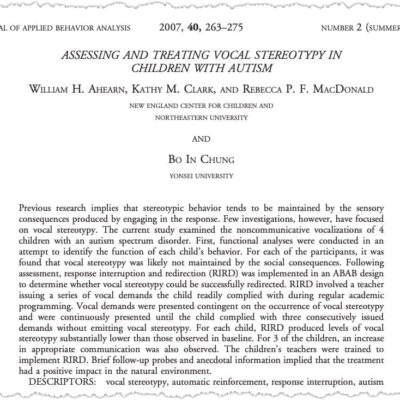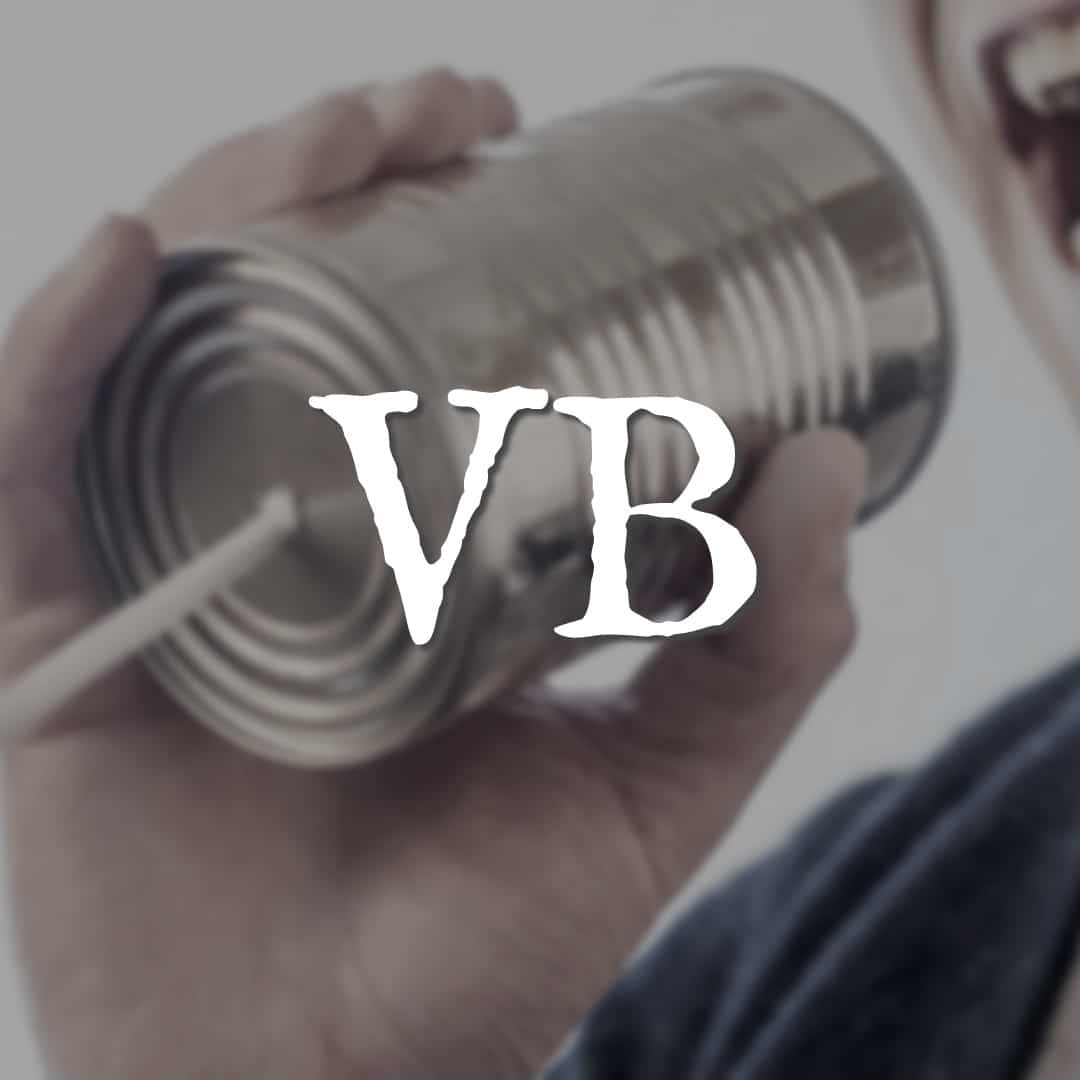An Introduction to Verbal Behavior
$79.99
BCBA CEUs: 8 CEUs
An interactive, multimedia tutorial that will help you master the key concepts, terms, and approach of B.F. Skinner’s analysis of verbal behavior and language
Brand: CEUniverse
Description
B.F. Skinner’s book Verbal Behavior provided a conceptual framework for both researchers and clinicians interested in human language. It serves as the basis for many interventions in applied behavior analysis, and contributes to a functional understanding of human language.
That book had two major components. First, it introduced a set of new concepts for classifying and analyzing verbal behavior. Second, it then used these new concepts to develop an innovative and profound analysis and interpretation of factors that account for the behavior of an individual speaker. However, much of the power and intricacies of that analysis are lost if the introductory material is not mastered first. This tutorial—based on a programmed instructional text of the same name first published by Behavior Associates, Inc. in 1978—provides a way to quickly and thoroughly master those concepts with a fully interactive, multimedia introduction to verbal behavior.
About the Author
 Dr. Norm Peterson retired as the Director of Operations at the Foundation for Behavioral Resources. He earned his Ph.D. in Psychology from Western Michigan University, where he was one of the first graduates of that department’s doctoral program in Behavior Analysis. Prior to his work at the Foundation, Dr. Peterson also served as a faculty member at Western Michigan University and as a senior HR Consultant at Consumers Energy.
Dr. Norm Peterson retired as the Director of Operations at the Foundation for Behavioral Resources. He earned his Ph.D. in Psychology from Western Michigan University, where he was one of the first graduates of that department’s doctoral program in Behavior Analysis. Prior to his work at the Foundation, Dr. Peterson also served as a faculty member at Western Michigan University and as a senior HR Consultant at Consumers Energy.
Learning Objectives
This tutorial introduces B.F. Skinner’s conceptual framework for analyzing human language and verbal behavior. It will be particularly beneficial to those working to establish verbal repertoires with children or adults who have language delays. This tutorial will not provide you with training in specific interventions or methods based on Skinner’s analysis of verbal behavior, but it will provide you with a conceptual understanding of the theoretical basis of such interventions and methods. Upon completing this tutorial, the learner should be able to:
- Identify definitions and examples of key theoretical concepts in Skinner’s analysis of human language (including verbal behavior, verbal stimulation, thematic and formal control, tact,
mand, echoic, intraverbal, textual, taking dictation, audience control, types of extension, multiple causation, secondary verbal behavior, and autoclitic mands and tacts) - Distinguish between formal and thematic control of verbal behavior
- Classify examples of the different ways verbal operants can be extended
- Specify the different ways we learn to respond to private stimulation
- Analyze samples of natural language using the terms and concepts of Skinner’s analysis of verbal behavior
History
This tutorial is based on a programmed textbook that was initially written as part of the author’s dissertation research at Western Michigan University and originally published in 1978. The content of this tutorial should be considered quite accurate, as it was written by an expert in the field and reviewed for accuracy by a number of other experts, including Dr. Richard Malott, Dr. Jack Michael, Dr. Linda Parott Hayes, and Greg Stikeleather. It was launched as an online tutorial on FoxyLearning in Adobe Flash format on May 28, 2010, with the first HTML5 version launching in May 2012. The tutorial is updated on an ongoing basis, with significant updates occurring in June 2013, January 2020, and August 2022.
Content
You can access several sample lessons for free below. Please note that your progress on sample lessons is not tracked or recorded.
Module Content
306 reviews for An Introduction to Verbal Behavior
| 5 star | 42 | 42% |
| 4 star | 42 | 42% |
| 3 star | 10 | 10% |
| 2 star | 2 | 2% |
| 1 star | 0 | 0% |
Sorry, no reviews match your current selections
Q & A
Alas, we do not have a reference list for this tutorial. The list would probably be quite small, though, as the tutorial is based almost entirely on Skinner's book, Verbal Behavior. The tutorial is focused on teaching the concepts introduced in that book and not so much on a literature review of any of those concepts.
Eric Fox answered on March 7, 2021 store managerSorry, no questions were found
You may also like…
-
Article Quiz

1.5 BCBA CEUs
Acquisition of Intraverbal Behavior: Teaching Children with Autism to Mand for Answers to Questions
Einar T. Ingvarsson & Tatia Hollobaugh4.28 out of 5(25)$14.99 Add to Cart Quick View -
Multimedia Tutorial

7 BCBA CEUs
An Introduction to Relational Frame Theory (RFT)
Eric J. Fox4.55 out of 5(503)$69.99 Add to Cart Quick View -
BundleSale!

16.5 Total BCBA CEUs
2.5 Ethics CEUs14 General CEUsRFT Bundle
$159.93Original price was: $159.93.$135.93Current price is: $135.93. Add to Cart Quick View
Related products
-
Interactive Video

2 BCBA CEUs
B.F. Skinner on Behaviorism and Verbal Behavior
B.F. Skinner & Eve Segal4.50 out of 5(2)$19.99 Add to Cart Quick View -
Interactive Video

1.5 BCBA CEUs
Chomsky vs. Skinner: In Their Own Words
Noam Chomsky & B.F. Skinner4.77 out of 5(22)$14.99 Add to Cart Quick View -
Article Quiz

1 BCBA CEU
Assessing and Treating Vocal Stereotypy in Children with Autism
William H. Ahearn, Kathy M. Clark, Rebecca P. F. MacDonald, & Bo In Chung4.55 out of 5(51)$9.99 Add to Cart Quick View






This course taught me so much, and in an effective way. The quizzes along the way helped me master the material so I was prepared to pass the final quiz first try.
Very much enjoyed the training. It was entertaining and informative. I like how each of the operants were described and knowledge checks allowed for a review of the information.
I enjoyed the interactive elements throughout the tutorial to help keep engagement and check for understanding.
Comprehensive and well done! I thought I knew all about verbal behavior but this really helped expand my knowledge and understanding of this concept!
Great way to hit every angle of verbal behavior and nice leveled structure